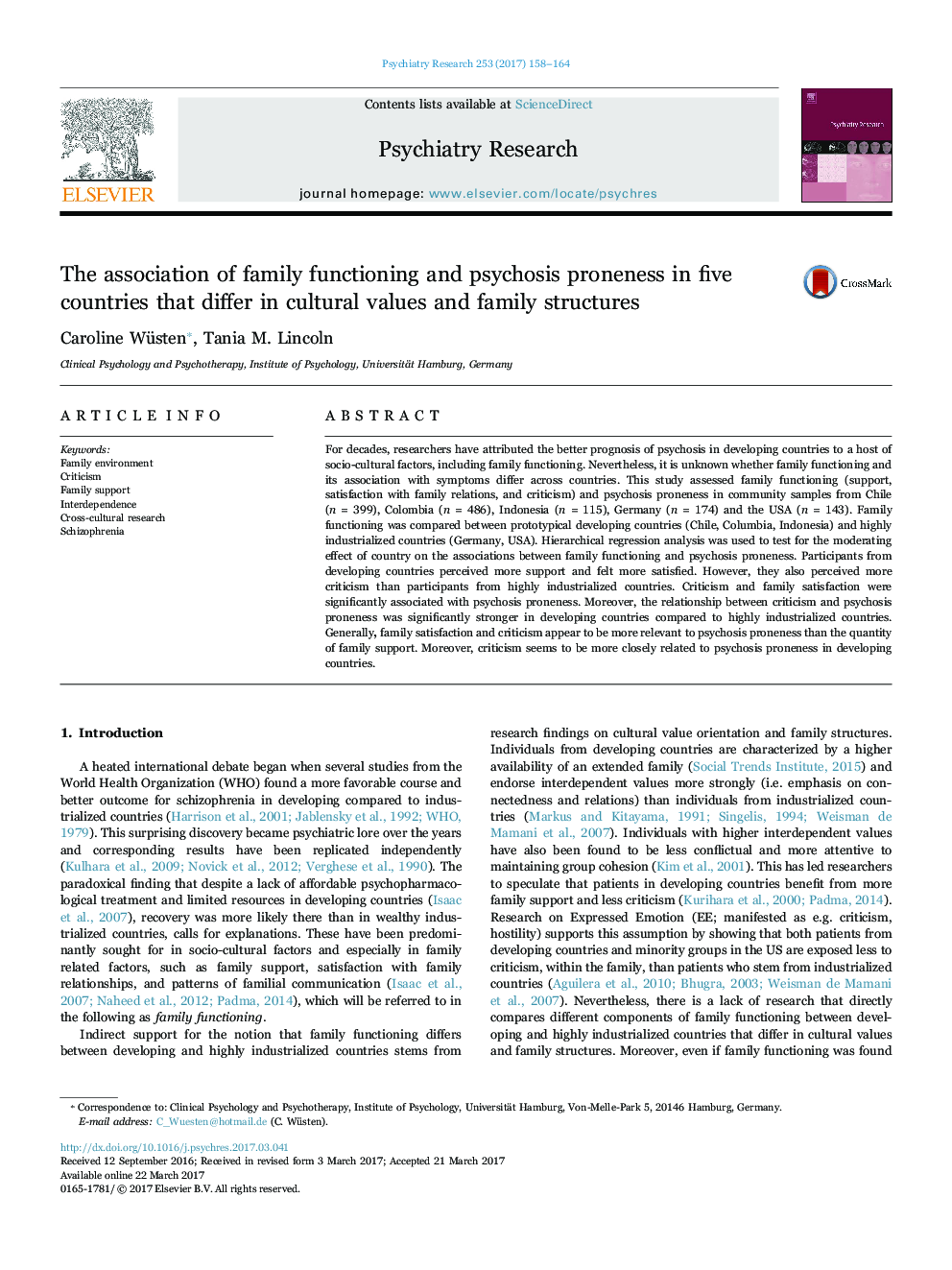| Article ID | Journal | Published Year | Pages | File Type |
|---|---|---|---|---|
| 4933289 | Psychiatry Research | 2017 | 7 Pages |
Abstract
For decades, researchers have attributed the better prognosis of psychosis in developing countries to a host of socio-cultural factors, including family functioning. Nevertheless, it is unknown whether family functioning and its association with symptoms differ across countries. This study assessed family functioning (support, satisfaction with family relations, and criticism) and psychosis proneness in community samples from Chile (n =399), Colombia (n=486), Indonesia (n=115), Germany (n=174) and the USA (n=143). Family functioning was compared between prototypical developing countries (Chile, Columbia, Indonesia) and highly industrialized countries (Germany, USA). Hierarchical regression analysis was used to test for the moderating effect of country on the associations between family functioning and psychosis proneness. Participants from developing countries perceived more support and felt more satisfied. However, they also perceived more criticism than participants from highly industrialized countries. Criticism and family satisfaction were significantly associated with psychosis proneness. Moreover, the relationship between criticism and psychosis proneness was significantly stronger in developing countries compared to highly industrialized countries. Generally, family satisfaction and criticism appear to be more relevant to psychosis proneness than the quantity of family support. Moreover, criticism seems to be more closely related to psychosis proneness in developing countries.
Keywords
Related Topics
Life Sciences
Neuroscience
Biological Psychiatry
Authors
Caroline Wüsten, Tania M. Lincoln,
